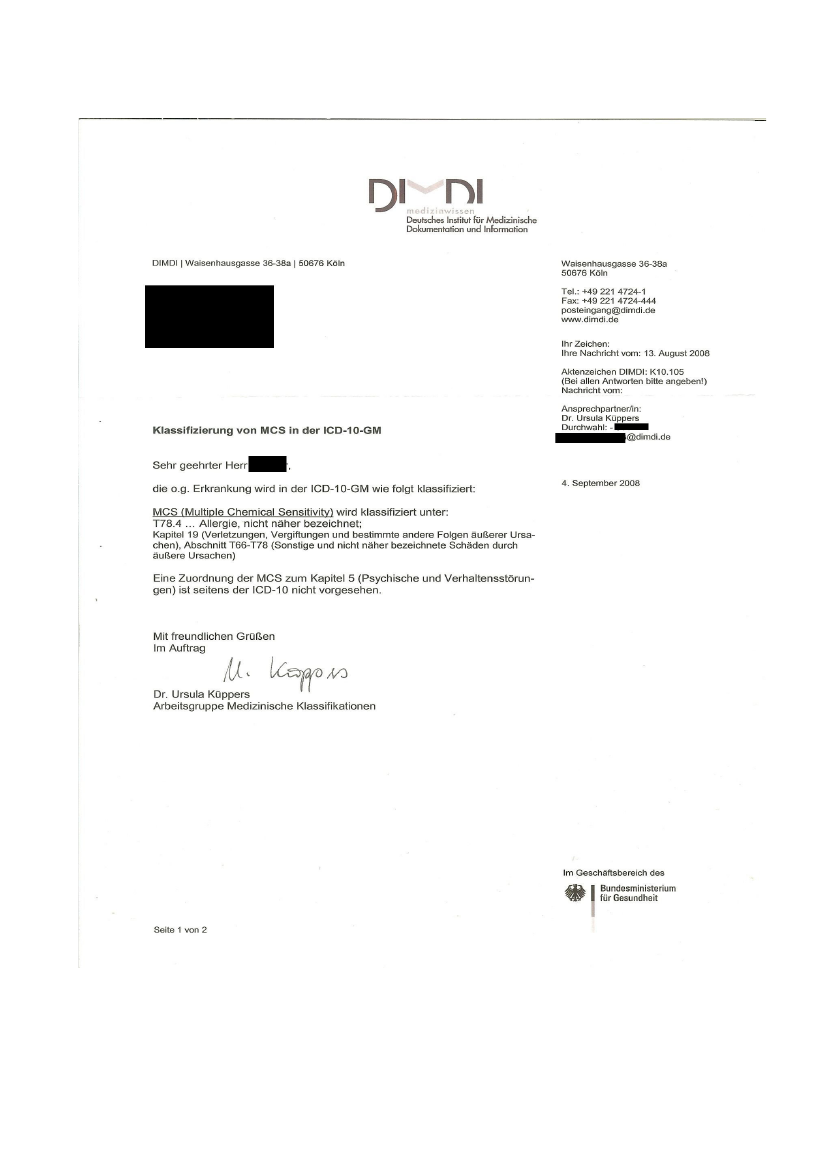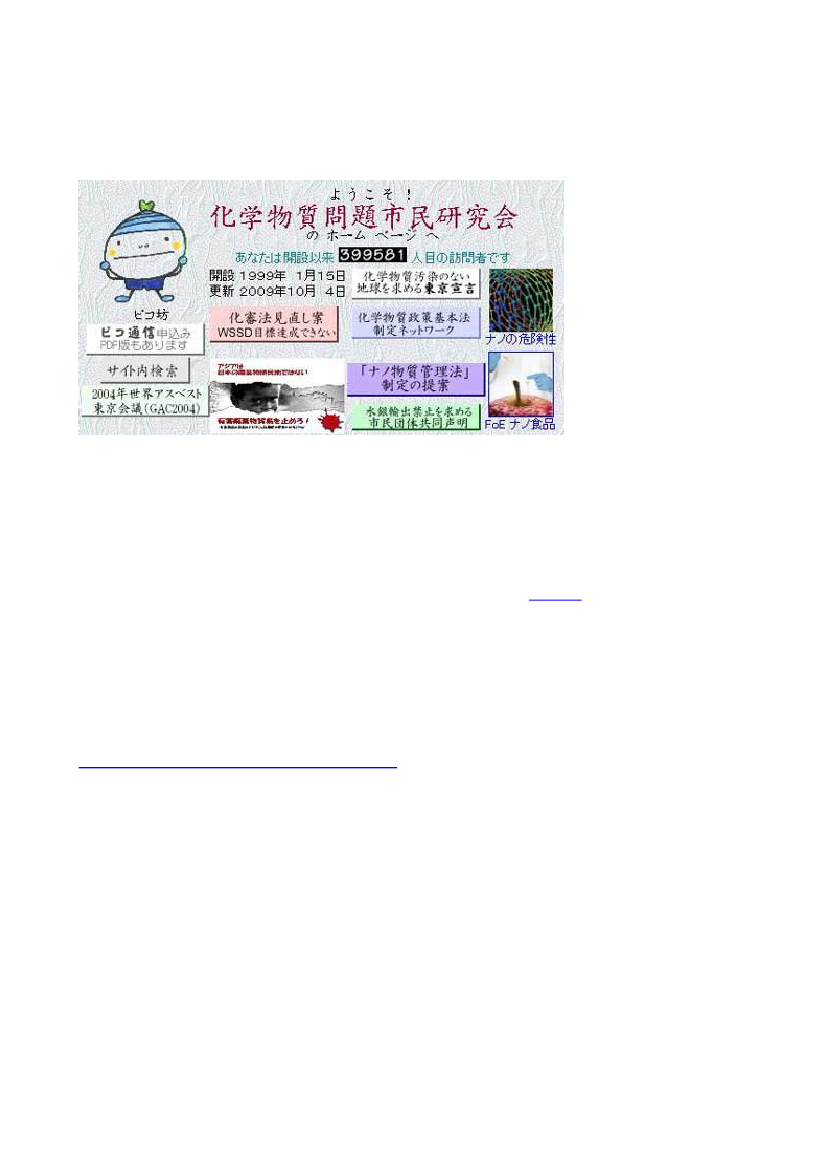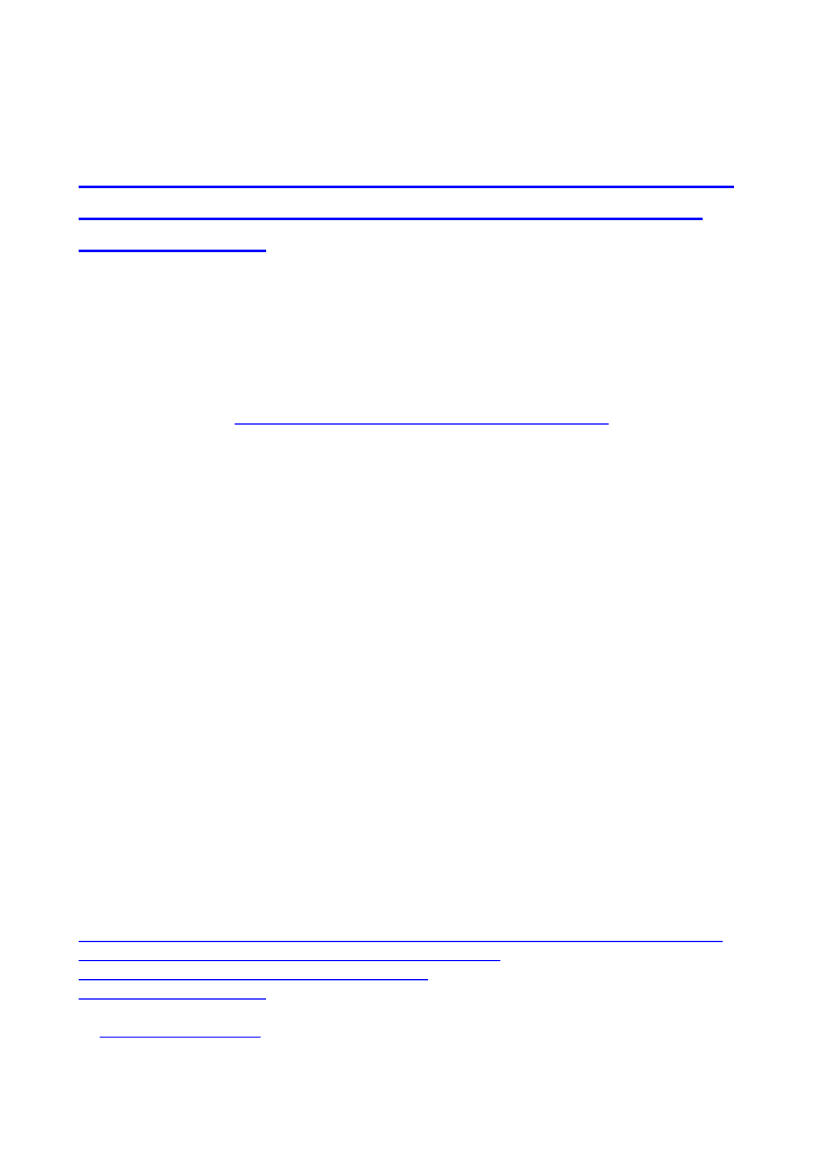Sundhedsudvalget 2009-10
SUU Alm.del Bilag 170
Offentligt
Til Folketingets Sundhedsudvalg
Vedrørende:Anerkendelse af lidelsen Multiple Chemical Sensitivity (MCS)Bilag:4 stk.Kopi:Sundhedstyrelsen4. januar 2010
I forlængelse af MCS-Danmarks foretræde for Folketingets Sundhedsudvalg den 9. december 2009henvender vi os hermed med en skrivelse med henblik på en Ministerudtalelse vedrørendeanerkendelse af lidelsen Multiple Chemical Sensitivity (MCS).
MCS er anerkendt som en fysisk lidelse i en række lande.Tyskland, Østrig, Schweiz og Luxenborg har anerkendt lidelsen efter WHO´s ICD-10 liste, kode nrT 78. 4, Allergy non specified (se bilag).Tysklands DIMDI (German Institute of Medical Documentation and Information), der er anerkendtaf WHO (se bilag), har lavet en tillægsliste/udvidet liste til ICD-10 listen. Denne hedder ICD-10GM. De øvrige Europæiske lande, der har anerkendt MCS, benytter sig, helt i overensstemmelsemed WHO, af denne tyske liste ICD-10 GM.Japan har ligeledes lavet en revideret ICD-10 liste, og Medis-DC (Medical Information SystemDevelopment Center) har offentliggjort, at man pr.1. okt. 2009 har anerkendt lidelsen efter ICD-10,kode T 65.9, Toxic effects of unspecified substances and hypersensitivity (se bilag).
Baggrunden for anvendelsen af forskellige koder er, at man endnu ikke kender lidelsens præciseårsagssammenhænge. Men MCS er en yderst velbeskrevet lidelse og heraf dens optagelse på dereviderede ICD-10 lister. Den første gennemførte beskrivelse af lidelsen fremkom i 1987. Dennebeskrivelse er fortsat i overensstemmelse med nuværende studier.Der er lavet adskillige befolkningsundersøgelser, Canada, USA, Sverige, Japan, Danmark, Italien,Tyskland, Australien, der alle påviser det samme symptombillede og sygdomsudløsende faktorer,og stort set de samme definitioner af lidelsen fremkommer.Ligeledes viser de alle, at et sted mellem ca. 0,5 % - 3 % af befolkningen lider af MCS.
Fra den danske befolkningsundersøgelse, foretaget af Videncenter for Duft- ogKemikalieoverfølsomhed, ved vi, at mindst 17.000 danskere lider af MCS i så svær grad, at detpåvirker deres sociale liv og deres arbejdsliv.
I Danmark er MCS ikke klassificeret og anerkendt, hvilket har den konsekvens, at MCS– ramte harmeget svært ved at blive korrekt diagnosticeret, og ved at få den hjælp, de har behov for fra såveloffentlige instanser som eget sociale netværk. Også for sundhedssystemet er den manglendeanerkendelse en belastning, idet MCS– ramte i årevis sendes til forskellige speciallæger medhenblik på en udredning, som ofte er forgæves.Mange MCS- ramte i Danmark lever i dag under helt uacceptable vilkår. Vi er dagligt i kontakt medMCS- syge mennesker, der må leve af kontanthjælp i op til 5-6 år. Andre må bo i campingvogn iårevis fordi indeklimaet i deres boliger gør dem syge; og mange MCS- ramte er på sammenbruddetsrand, da de pga. sygdommen har mistet deres helbred, arbejde, økonomi og bolig, uden at haveudsigt til at kunne få nogen form for hjælp.Vi finder det helt utilladeligt og uforståeligt at dette forekommer, når vi har at gøre med en lidelse,der er så velbeskrevet og med dokumentation for dens invalideringsgrad.
Vi opfodrer derfor til at Danmark anerkender/klassificerer MCS ved, som de andre mindreEuropæiske lande, at anvende Tysklands, eller som en anden mulighed Japans, reviderede ICD-10liste.
Venlig hilsenMCS - Danmark
FormandEsther EgeriisogBestyrelsesmedlemEllen Vibede Destremau
BilagDIMDI confirmed as WHO Collaborating Centre for International ClassificationsJun 18, 2008The World Health Organisation has confirmed the German Institute of Medical Documentation andInformation as a WHO Collaborating Centre for the Family of International Classifications. Theappointment valid for the next four years is the result of the successful work undertaken by theInstitute and underlines the years of expertise it has acquired in this area.“We are very proud of the clear expression of appreciation by the WHO for our work, confirming asit does that we are experts in the area of medical classifications and terminologies for medical andinformation technology interfaces”, said Dr. Dietrich Kaiser, Director of DIMDI, of the renewal ofthe Institute's appointment as a WHO Collaborating Centre.DIMDI was appointed WHO Collaborating Centre for the Family of International Classificationsfor the first time in 2003. This constituted institutional recognition of the many years of workperformed by DIMDI in the field of national and international classifications.“Standardised terminologies and classifications are essential tools for the unambiguous exchange ofdata in modern medicine”, says Dr. Michael Schopen, Director of the WHO Collaborating Centreand Head of DIMDI's Medical Information department, whose many years of classification workare the reason for the appointment by the WHO.The Family of International Classifications encompasses the International Classification of Diseases(ICD), the International Classification of Functioning, Disability and Health (ICF) and theassociated International Classification of Diseases for Oncology for the codification of tumourdiseases.Apart from translation and carrying out year-round reviews, DIMDI works on the ongoingdevelopment and use of classifications, on the development of methods for the application of theseas well as examining relations to other terminologies and nomenclatures. DIMDI plays an activerole in international methods for quality assurance and the development of teaching materials andcourses.DIMDI is therefore actively involved in numerous working groups of the WHO CollaboratingCentres for classifications: in the WHO FIC Council, the Update Reference Committee, theMortality Reference Group, the Morbidity Reference Group, the Family Development Committee,the Education Committee and the Implementation Committee. DIMDI chairs the Electronic ToolsCommittee (ETC), which plays a supporting role to the WHO in the development and provision ofelectronic tools for classifications. The Institute is currently working on the development of aClassification Tool Kit for the administration and continued development of classifications.DIMDI provides high quality information for all health care areas. It develops and operatesdatabase-supported information systems for drugs and medical devices and is responsible for aprogramme that evaluates medical procedures and technology (Health Technology Assessment,HTA).
DIMDI is the publisher of official medical classifications such as ICD-10-GM and OPS (Germanprocedure classification) and maintains medical terminologies, thesauri, nomenclatures andcatalogues (e.g. MeSH, UMDNS, Alpha-ID, LOINC, OID) that are important for health caretelematics and other applications.DIMDI facilitates online access to its information systems and 70 databases covering the entire fieldof medicine. It also develops and maintains software applications and operates its own dataprocessing centre
www.dimdi.de
BilagJapansk anerkendelse af MCS.
”Der er gode nyheder.Den 1. oktober 2009, offentliggjorde Medical Information System DevelopmentCenter (Medis-DC), et datterselskab organisering af sundhedsministerium Laborand Welfare (MHLW) den reviderede liste overICD-10Japansk StandardSygdomme Code Master i hvilken MCS er kategoriseret i T65.9: Giftig effekt afandre og uspecificerede stoffer / Giftig effekt af uspecificerede stof.Det er nu klart anerkendt i Japan, at MCS er IKKE en psykisk sygdom, men enfysisk sygdom.”……………
www.csn-deutchland.de/mcs_class.pdf(google oversættelse)
Bilag
The Department of Health of the Austrian Governmentrecognizes MCS – Multiple Chemical Sensitivity as aphysical diseaseJust like Germany, Austria is now classifying Chemical Sensitivity / MCS – MultipleChemical Sensitivity as a physical disease under the code T78.4 of the ICD-10 (theregister of diseases). The news comes from a recent letter by the Department of Health ofthe Austrian Government.MCS in the ICD-10 in GermanyIn a letter dated September 4, 2008 the DIMDI, the Cooperation Partner for Germany ofthe WHO, wrote thatMCS – Multiple Chemical Sensitivity was classifiedin the registerICD-10 GM which is valid in Germany:MCS – Multiple Chemical SensitivityT78.4…Allergy, not otherwise specified;Chapter 19 (Injuries, Intoxication and certain other outcomes), Article T66-T78 (Other andunspecified injuries caused by external causes).MCS in Austria recognized as physical diseaseWith a letter dated June 24, 2009 regarding “Chemical Sensitivity / MCS – MultipleChemical Sensitivity (T78.4)”, the Department of Health of the Austrian Governmentdeclares that:In response to your letter dated 4/14/2009 to the Minister of Health Mr. Stoerger, we informyou that the WHO ICD-10 Code modified for Germany from DIMDI is used in Austria aswell.Also in Austria MCS is not a psychological diseaseIt should be emphasized that the German Institute for Medical Documentation andInformation (DIMDI) declared explicitly that there is not any allocation of MCS in Chapter 5(Mental and behavioural disorders) of the ICD-10-GM. Thus, the debate about MCS asmental illness is at an end.In Germany doctors who document the diagnosis and the hospital administrations workunder the Social Security Code V, which states that the diagnoses have to be madeaccording to the systematic list of ICD-10-GM. Thus, the ICD-10 classification is legallybinding.The Department of Health of the Austrian Government refers in the letter that MCS –Multiple Chemical Sensitivity is recognized in Austria as a physical disease, because alsothere it will have the code T78.4 in the ICD-10.Author:Silvia K. Müller, CSN – Chemical Sensitivity Network, 26. June 2009References:Bundesministerium für Gesundheit, Chemikalien-Sensitivität / MCS – Multiple ChemicalSensitivity (ICD-10 T78.4), 24.06.2009, Wien, Österreich.DIMDI Letter to CSN, MCS ICD-10, 04.09.2008DIMDI Letter, 04.09.2008www.csn-deutchland.de







